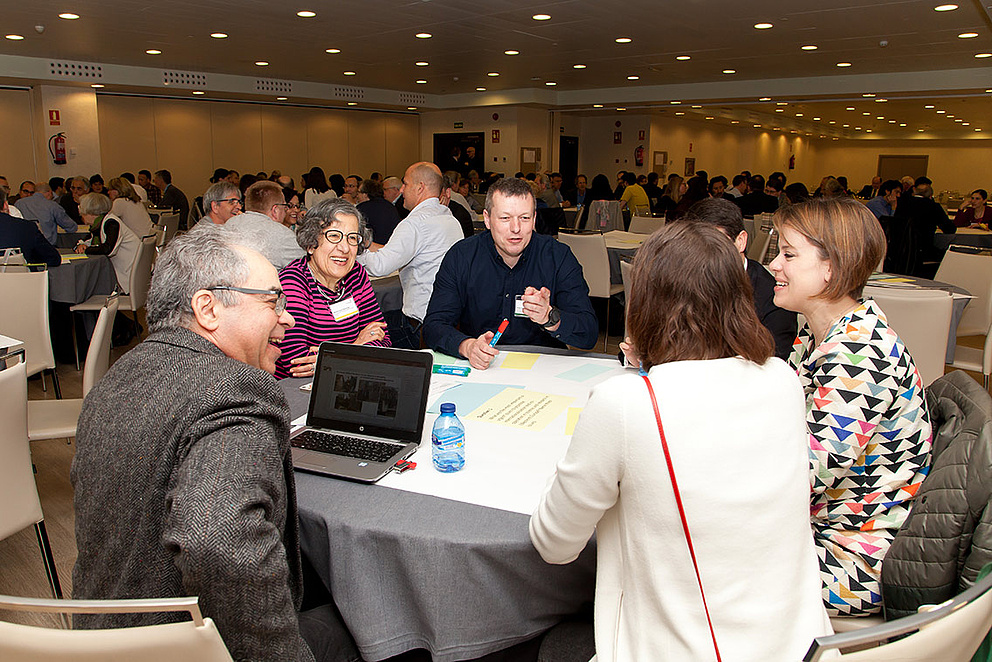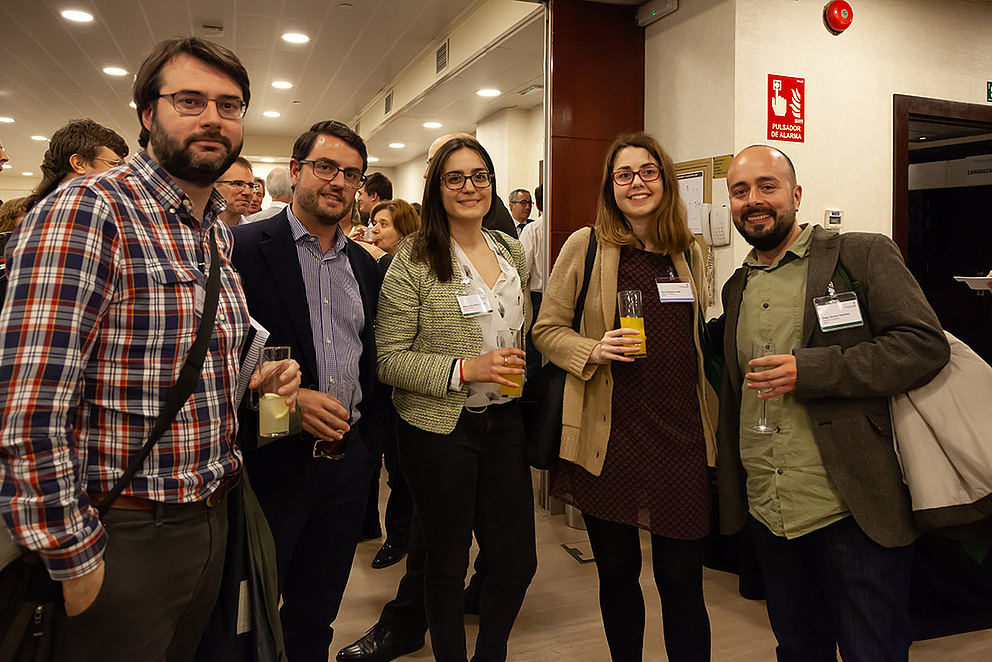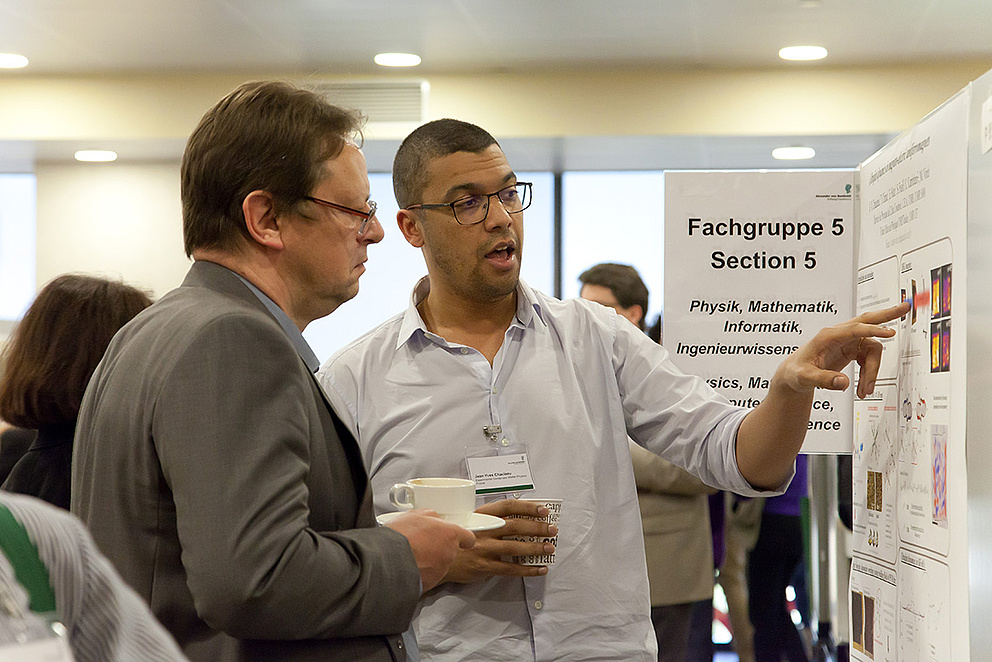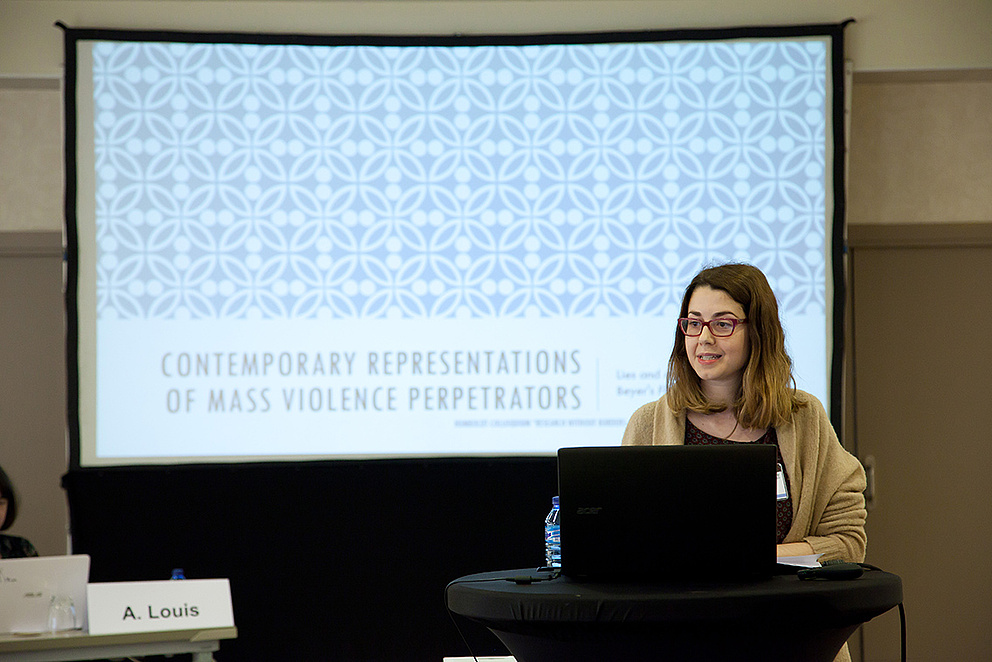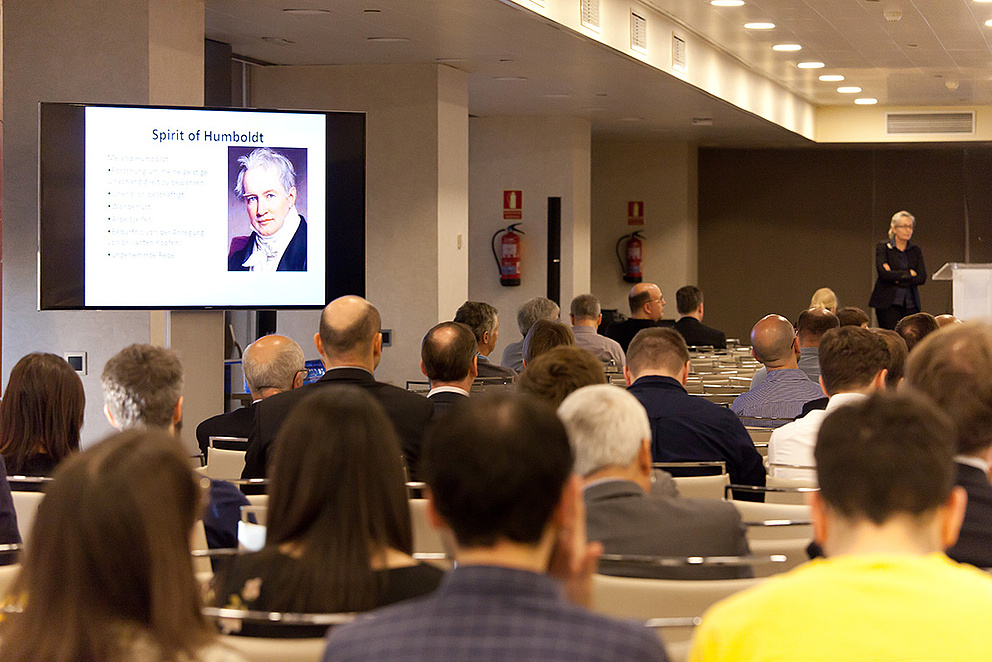
Contact
Press, Communications and Marketing
Tel.: +49 228 833-144
Fax: +49 228 833-441
presse[at]avh.de
updated on June 24, 2019
European researchers discussed the relevance of Alexander von Humboldt’s intellectual legacy for the present at a Humboldt Colloquium in April. Minister of State Michelle Müntefering opened the conference.
“Humboldt was a global scientist and a global citizen whose work is still a shining example today for how we should deal with one another and with nature. His views were determined by knowledge, not prejudices”, Michelle Müntefering, Minister of State at the Foreign Office of the Federal Republic of Germany, stressed in her opening remarks to nearly 300 alumni and junior researchers. In Europe, science is a key force behind consensus because it strives to find the best solutions while relying on the strength of arguments rather than the law of the strongest, Müntefering noted as she opened the conference in Madrid together with Hans-Christian Pape, President of the Alexander von Humboldt Foundation. Hans-Christian Pape underscored the role international networks like the network of Humboldt alumni play in ensuring – in Humboldt’s spirit – research that knows no national borders. “This is because good, successful research arises from transnational collaboration”, the President of the Alexander von Humboldt Foundation said at the opening ceremony.
The colloquium this year – the 250th anniversary of Humboldt’s birth – focussed on “Research without Borders – Alexander von Humboldt’s Legacy Today”. During his lifetime Humboldt, the natural scientist, networker and science communicator, set standards for science. How relevant is his legacy for today’s scientists and researchers? How can Humboldt’s ideals be put to use today for collaborative activities and networks?
Questions like these provided the backdrop for the interdisciplinary colloquium to which the Alexander von Humboldt Foundation had invited nearly 300 young scientists, alumni of the Foundation and guests from Spain, Portugal, France and the Benelux countries. The conference was held in Madrid at the Philosophical Faculty of Universidad Complutense and at Hotel Meliá Avenida América. During the two-day conference, the junior scientists attending the event presented their research topics from a wide range of disciplines.
Today, more than 2,000 alumni of the Humboldt Foundation live in Spain, Portugal, France, Belgium, the Netherlands and Luxemburg. Many of them hold key positions at universities, research institutes and other institutions. The aim of these events with their interdisciplinary workshops and presentations is to bring Humboldtians into contact with one another and with German colleagues. These colloquia also provide an opportunity to draw the attention of junior researchers to the Humboldt Foundation’s sponsorship portfolio and to Germany as a location for conducting research.
Every year, the Humboldt Foundation organises two major colloquia abroad to which all the alumni from the respective country or region are invited. The colloquium in Madrid is being held in cooperation with the German Academic Exchange Service and the Deutsche Forschungsgemeinschaft.

